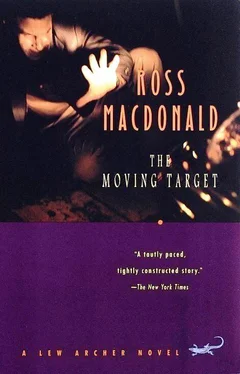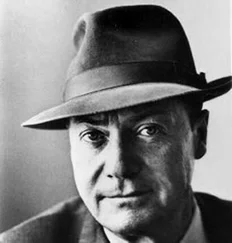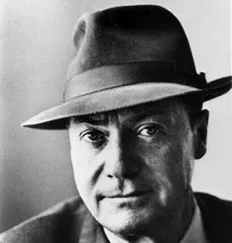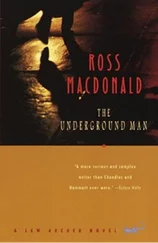“The hell you say! I want no part of that racket.”
“It’s good enough for me. It’s good enough for Eddie. You’re getting awful fancy-pants since he took you off the street–”
“Shut up or you’ll be sorry!” she said. “The trouble with you is you’re yellow. You see a patrol car and you wet your pants. So you try to get a woman to take your rap, like any other pimp.”
He stood up suddenly, brandishing the bottle. “Lay off me, hear. I don’t take nothing from nobody. You was a man, I spoil your face for you, hear.” The beer foamed out on the floor and over her knees.
She answered very coolly. “You wouldn’t say that in front of Eddie. He’d saw you to pieces, and you know it.”
“That little monkey!”
“Yeah, that little monkey! Sit down, Puddler. Everybody knows you’re a powerful battler. I’ll get you another beer.”
She got up and moved across the room, stepping lightly and furiously like a starved cat. Taking a towel from a nail beside the sink, she dabbed at her beer-stained bathrobe.
“You drive the truck?” Puddler said hopefully.
“Do I have to say everything twice, the same as you? I’m not driving the truck. If you’re afraid, let one of them drive.”
“Naw, I can’t do that. They don’t know the road; they get knocked off.”
“You’re wasting time, then, aren’t you?”
“Yeah, I guess so.” He moved towards her uncertainly, casting a huge shadow on the floor and wall. “How’s about a little something before I go? A little party. Eddie’s probably in the sack with somebody. I got plenty what it takes.”
She picked up a bread knife from the table, the kind with a wavy cutting edge. “Take it away with you, Puddler, or I’ll love you up with this.”
“Come on now, Marcie. We could get along.” He stood still, keeping his distance.
She gulped to control her rising hysteria, but her voice came out as a scream. “Beat it!” The bread knife moved in the glaring light, pointed at his throat.
“O. K., Marcie. You don’t have to get mad.” He shrugged his shoulders and turned away with the hurt and helpless look of any rejected lover.
I left the window and started up the hill. Before I reached the top, a door swung open, projecting an oblong of light on the hillside. I froze on my hands and knees. I could see the shadow of my head on the dry grass in front of my face.
Then the door closed, drawing darkness over me. Puddler’s shadow came out of the pool of shadows behind the house. He went up the steep lane, scuffing the dust with his feet, and disappeared behind the eucalyptus trees.
I had to choose between him and the blond woman, Marcie. I chose Puddler. Marcie could wait. She’d wait forever before Eddie something came back.
A few miles north of Buenavista the blue truck left the highway, turning off to the right. I stopped to let it get well ahead. A sign at the intersection said “Lookout Road.” Before I turned up after it, I switched to my fog lamps. The fog had blown out to sea, but I didn’t want Puddler to see the same headlights behind him all the way.
All the way was close to seventy miles, two hours of rough driving through mountains. One five-mile stretch, along a ridge so high that my ears hurt, was as bad as any road I’d driven by daylight: two ruts along a black cliff edge, with dark eternity waiting below each curve. The truck highballed along as if it was safe on rails. I let it get out of sight, switched my lights again, and tried to feel like a new man driving a different car.
We came by a different route into the valley Miranda and I had crossed in the afternoon. On the straight valley road I turned out my car lights entirely and drove by the light of the moon, eked out by memory. I thought I knew where the truck was going. I had to be certain.
On the other side of the valley it climbed into the mountains, up the twisting black-top which led to the Temple in the Clouds. I had to use my lights again to follow it. When I reached Claude’s mailbox the wooden gate beside it had been closed. The truck was far above me, a glowworm crawling up the mountain. Higher still, above the jagged black horizon, the cleared sky was salted with stars. The unclouded moon was motionless among them, a round white hole in the night.
I was tired of waiting, of following people down dark roads and never seeing their faces. So far as I knew, there were only the two of them there, Puddler and Claude. I had a gun – and the advantage of surprise.
I opened the gate and drove through, up the winding lane to the rim of the mesa, and down toward the Temple. Above its white mass there was a faint glow from an interior light.
The truck was standing inside the open wire gate, its back doors swinging wide. I parked at the gate and got out. There was nothing inside the truck but crouched shadows, a wooden bench padded with burlap along each side, the pungent odor of men who have sweated and dried in their clothes.
The ironbound door of the Temple creaked open then. Claude came out, a moonlit caricature of a Roman senator. His sandals crunched in the gravel. “Who is that?” he said.
“Archer. Remember me?”
I moved from behind the truck and let him see me. He had an electric lantern in his hand. It shone on the gun in mine.
“What are you doing here?” His beard waggled, but his voice was steady.
“Still looking for Sampson,” I said.
As I approached he backed toward the door. “You know he is not here. Was one sacrilege not enough for you?”
“Skip the mumbo jumbo, Claude. Did it ever fool anybody at all?”
“Come in if you must, then,” he said. “And I see you must.”
He held the door for me and closed it after me. Puddler was standing in the center of the court.
“Get over there with Puddler,” I said to Claude.
But Puddler came towards me in a shuffling run. I shot once at his feet. The bullet made a white scar in the stone in front of him and whined into the adobe wall on the other side of the court. Puddler stood still and looked at me.
Claude made a half-hearted try to knock down my gun. I took him in the stomach with my elbow. He doubled up on the pavement.
“Come here,” I said to Puddler. “I want to talk to you.”
He stayed where he was. Claude sat up hugging his torso and cried out loudly in a Spanish dialect I didn’t understand. A door sprang open as if it knew Spanish, on the other side of the court. A dozen men came out. They were small and brown, moving quickly toward me. Their teeth flashed in the moonlight. They came on silently, and I was afraid of them. Because of that, or something else, I held my fire. The brown men looked at the gun and came on anyway.
I clubbed the gun and waited. The first two got bloody scalps. Then they swarmed over me, hung on my arms, kicked my legs from under me, kicked consciousness out of my head. It slid like a disappearing tail light down the dark mountainside of the world.
I came to fighting. My arms were pinned, my raw mouth kissing cement. I realized after a while that I was fighting myself. My arms were tied behind me, my legs bent up and tied to my waist. All I could do was rock a little and beat the side of my head against cement. I decided against this policy.
I tried yelling. My skull vibrated like live skin on a drumhead. I couldn’t hear my voice above the roar. I gave up yelling. The roar went on in my head, rising higher and higher until it was out of my range, a silent screech. Then the real pain began, pounding my temples in syncopated rhythm like roustabouts driving stakes. I was grateful for any interruption, even Claude.
“The wrath of the god is heavy,” he said, above and behind me. “You may not desecrate his temple with impunity.”
Читать дальше












